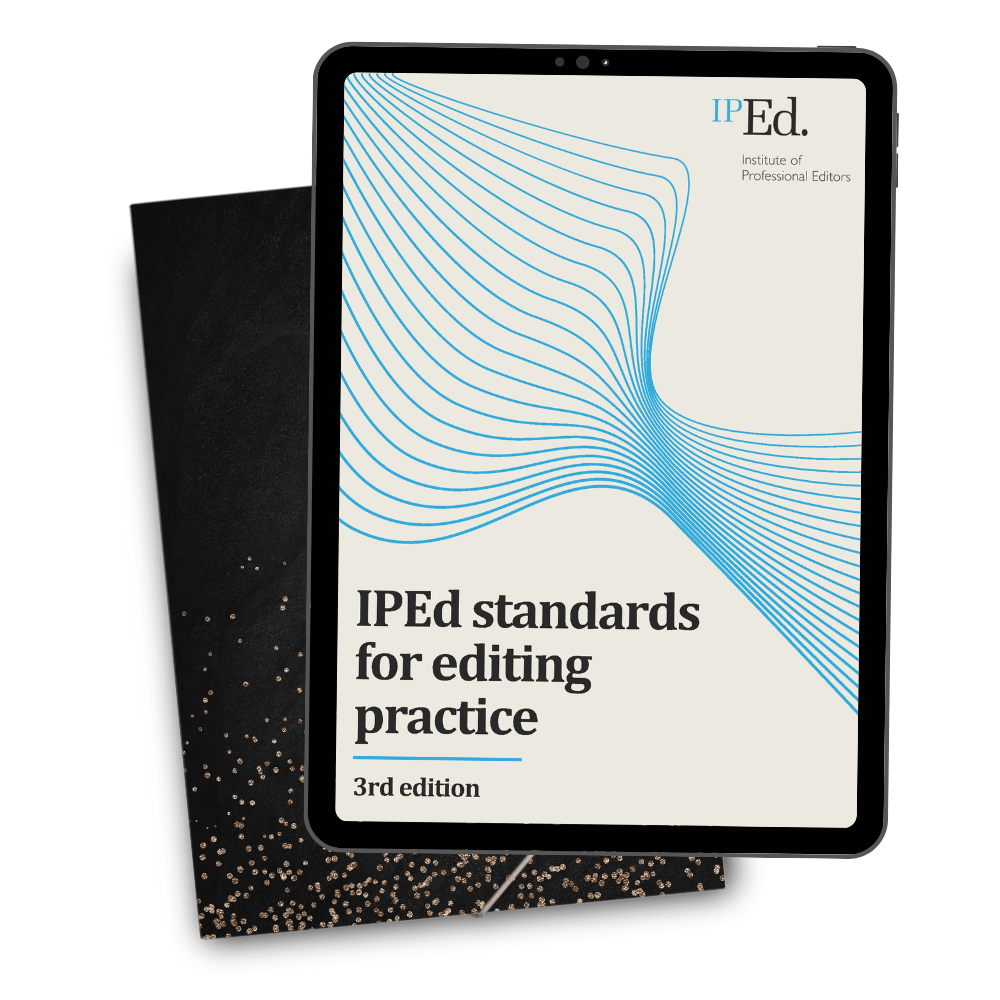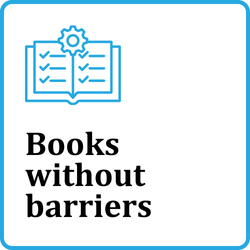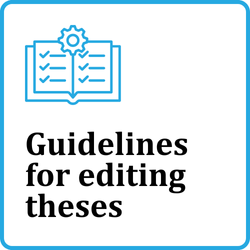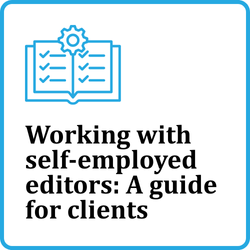Welcome to the Institute of Professional Editors
We are the professional association for Australian and Aotearoa New Zealand editors. We exist to advance the profession of editing and to support and promote Australian and New Zealand editors.
If you’re a professional editor, we manage an accreditation scheme, present a major biennial conference, deliver professional development, sponsor awards for excellence, and maintain the IPEd standards for editing practice.
If you’re looking for an editor, we manage the Editors Directory, provide information on the various aspects of editing, and offer resources like the Working with self-employed editors guide.


Become a member
Membership of IPEd is open to editors engaged in any aspect of editing for online and print publishing and anyone with an interest in editing, publishing or a related field, including students.
When you apply for membership of IPEd, you will choose to be assigned to a branch. The branches are responsible for arranging member meetings, events and professional development activities.
Explore our resources
Find an editor
The Editors Directory is a searchable list of freelance editors who are IPEd professional members.
You can search for an editor who offers the services you need and has expertise in the subject(s) you are writing about. It also enables you to search for editors who can work in a language or languages other than English, or have experience working with authors from non-English speaking backgrounds.


Accreditation
Our accreditation scheme is a powerful confidence booster – for editors and employers alike.
If you’re an editor in Australia or New Zealand, IPEd accreditation shows that you know what you’re doing. Our exam tests your competence in the core skills and knowledge that professional editors need to have no matter where they work or what they work on.
For clients and employers, if you hire an IPEd-accredited editor, you can have confidence in their skills and the results they can deliver.
IPEd’s accreditation scheme for professional editors in Australia and New Zealand is administered by the Accreditation Board. It is open to IPEd members and members of approved affiliate editing organisations.
Mentorship
Are you looking to learn from other editors, to improve your editing skills with professional oversight and feedback from experienced editors? Perhaps you’re preparing for the accreditation exam. Or maybe you’re stepping back into editing after some time away and keen for some advice.
Our Mentoring Program might be just what you’re looking for.
We will pair you with an experienced and approachable mentor who can provide the advice and guidance to help you develop as an editor.

Awards and prizes
Our awards shine a spotlight on Australian and New Zealand editors, recognising their invaluable contribution to words.
IPEd awards the Janet Mackenzie Medal to an outstanding professional editor who has lifted the standard of the editing profession and/or given exemplary service to IPEd. The Rosanne Fitzgibbon Editorial Award (the Rosie) recognises excellence in editing while the IPEd Student Prize acknowledges excellent work by a student of editing.
IPEd conference
The IPEd conference is the premier conference for editors in Australia and Aotearoa New Zealand.
The conferences have:
- promoted connections between editors
- increased research and development in the profession
- provided opportunities for collaboration.
For more than 20 years, editors have gathered to hear from some of the industry’s leading voices, to share innovative research and discuss a range of ideas and topics.


IPEd standards for editing practice
IPEd standards for editing practice sets out the core standards that professional editors should meet.
The Standards also tells employers what to expect from the editors they hire and show new editors the range of skills and knowledge they should aspire to. It helps us, educational institutions and other training providers to devise material, seminars and courses on editing. And it is the foundation for our accreditation scheme.







